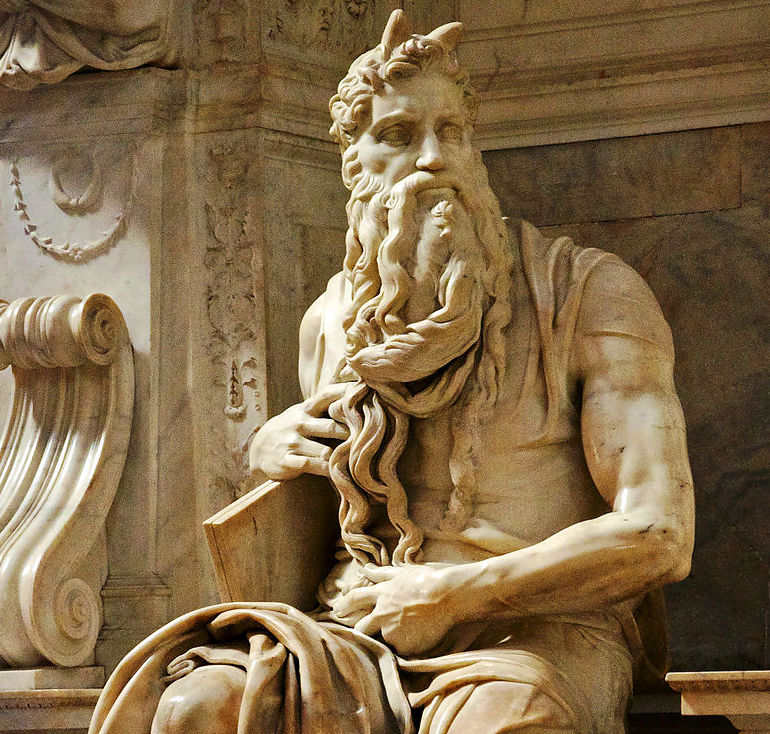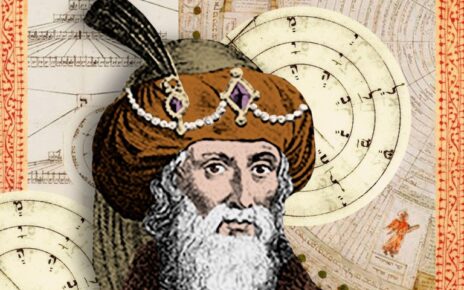The following is the last installment of a three-part series. The first one can be found here. The second one can be found here.
As Thomas A. Lewis reminds us, the terms ‘God’, ‘spirit’ and ‘Absolute’ are synonymous for Hegel, the specific word used being dependent on the context in question (religion, philosophy and generic, respectively). This is because philosophy and religion have a common ‘object’, although they are distinguished by the forms in which they are cognized – representation (Vorstellung) in the case of religion and self-determining concepts of thought (Denken) for philosophy.[1] That is to say, the absolute is spirit, the authoritative ‘object’ of all religion and philosophy; God is the representational expression of what philosophy grasps as spirit.[2]
In order to understand what Hegel means by these terms, several commentators have suggested that it is necessary to go back to Kant’s ‘transcendental unity of apperception,’ with which it is closely linked. This has been well formulated by Beatrice Longuenesse, when she says that it ‘is not a psychological or empirical notion. Rather, what it describes is the unifying activity, whatever its empirical realization may be, that makes it possible for all representations to be, eventually, accompanied by the proposition “I think.” In other words, for Kant all cognition, and more generally, all thought, is grounded on a unifying project expressed in the mere proposition “I think.”
This project is not that of a particular, empirically determined individual subject, but is engrained in the very nature of thought.’[3] Longuenesse goes on to say that Hegel thought that Kant was right to have identified the necessity of this unifying function – what Hegel calls the ‘concept’ – but that he was mistaken in conceiving of it as an external relation between a consciousness and its object. Kant does not see that it is a function immanent to thought itself. Indeed, this can only be seen when the standpoint of ‘absolute reflection’ has been reached. At this point, it is seen that ‘the reflection of consciousness on its object is the reflection of consciousness on itself and its own rational forms, and that these rational forms are not those of individual consciousness, but of Spirit [God], a We [God] whose knowing culminates in absolute knowing.’[4]
If this is so, then we can see how closely connected are Hegel’s notions of ‘concept’, ‘Spirit’, ‘God’ and the ‘Absolute’. The ‘We’ that Longuenesse refers to here is not the collective term for the totality of particular knowing subjects, just as the transcendental unity of apperception is more than the mere empirical unity of representations. It precedes and makes possible particular knowing subjects; at the same time, however, it does not come from anywhere external, but from the immanent process of thought itself.
Given the close connection that Longuenesse makes here between this ‘We’ and Spirit/God, we can see that this reinforces the sense of close interconnection between divine and human subjectivity, that we saw Malabou to insist upon. Indeed, Malabou goes so far as to say that for Hegel ‘God is conceptualized as transcendental imagination’, that he conceives the ‘identity of God and transcendental imagination.’[5]
We thus begin to see what is so distinctive about Hegel’s conception of the Absolute or God, and Longuenesse’s invocation of the work of Jules Vuillemin makes this particularly explicit. Vuillemin has pointed out that Kant’s ‘thing in itself’ had a twofold character: on the one hand, it is a regulative idea, and on the other, it is the real, albeit unknowable, source of reality. He shows how this duality repeatedly threatens to introduce an Absolute as the real source of knowledge and morality over against the constitutive role of transcendental subjectivity.[6]
Rather than allowing for this separation, Hegel, in contrast, insists on their co-belonging: ‘he wants both to restore the unconditioned – the Absolute – as the privileged concern of philosophy, and to give a completely new dimension to constitutive subjectivity.’[7] And, we might add, he wants to show how the two mutually create and sustain each other.
In light of all this, then, certain corollaries follow. First, having insisted that the unconditioned absolute is not set over against transcendental subjectivity, but is rather in a co-constitutive relationship with it, we can see how Hegel answers the Kantian question regarding the truth of appearances. Longuenesse says that Hegel answers this question by telling us that ‘the truth of the appearance is that it is a synthesis of a thought unity and a multiplicity. And this synthesis is possible only because unity and multiplicity are constituted by one and the same thought process. This is the “very thing,” the true unconditioned. What is “truly unconditioned” is that there is being, and that being only appears – erscheint – as the unity of determinations constituted by the thought process through which it appears.’[8]
Longuenesse attempts to illuminate this understanding of the ‘truly unconditioned’ with reference to Kant’s explanation of the root of the fourth Antinomy. In the fourth Antinomy, two arguments are made, one for and one against the existence of a necessary being, and both of them are derived from the same grounds. Longuenesse recasts Kant’s analysis in Hegelian terminology: she says that both the arguments for and against the existence of a necessary being are two ways of defining the same thing, namely, the ‘series of all conditions’. Furthermore, they both have the same ground of proof, namely, reason’s demand of the unconditioned: ‘This demand is expressed on the one hand by the a priori affirmation of the completion of the series of conditions: the totality of the series is posited as the condition of the series itself [i.e. the argument for a necessary being].
On the other, the demand for the unconditioned is expressed in the rule that commands not to arbitrarily close the empirical search for the conditions: the inexhaustible empirical series is posited as the condition of its own totalization [i.e. the argument against a necessary being].’[9] Rendering this in more still more explicitly Hegelian terms, she says that looked at one way, totality (which Hegel calls ground) can be understood to be the condition or prerequisite of the empirical series (which Hegel call condition). Looked at another way, the empirical series can be seen to be the condition or prerequisite of totality. In other words, ground (totality) and condition (the empirical series) determine each other mutually, and rational unity is what grounds both sides of the antinomy.
This is, in effect, an exposition of what Hegel means by the unconditioned. When this is realized the implications are considerable. As Longuenesse says, ‘the Hegelian unconditioned is not, as one might too hastily think, the expression of Hegel’s unilateral adoption of the thesis of the Kantian Antinomies in the name of a triumphant rationalism. Rather, Hegel’s “unconditioned” is the very structure within which the antinomy appears, about which both sides of the antinomy are true … So although it is true, on the one hand, that the conditions are, as empirical existence, Dasein, open to an infinite regress, it is also true, on the other hand, that the world and things in the world are thought as a completed unity. The same function prevails on both sides and the same thing is thought under the two guises.’[10]
The implications of this for Hegel’s understanding of God are considerable. If God is the religious rendering of the absolutely unconditioned, we can see that God is that which precedes and makes possible the antinomy between totality and the empirical series of particular conditions. And we can also see that God is that about which both sides of the antinomy are true. If this is the case, we can cast the difference between Rowan Williams and Slavoj Žižek’s thinking on God in this light.
That is to say, Williams’s emphasis on the transcendence of God might be seen as a way of looking at God (the absolutely unconditioned) from a perspective that prioritises totality as the condition for the empirical series of conditions. On the other hand, Žižek’s emphasis on the way in which transcendence of God is an effect of immanent material reality might be seen as a way of looking at God (the absolutely unconditioned) from a perspective that prioritises the empirical series of conditions as the condition for the totality. We can therefore see the very specific way in which ‘both sides of the antinomy are true’, and we are thereby relieved of the need to affirm one at the expense of the other, and, indeed, there is a sense in which both characterisations are necessary.
If it is the case, as we have said, that the Absolute, or God, is not set apart and independent of the thought that thinks it, but is rather implicated in and, in a certain sense, constituted by such thought, then there a second corollary worth explicating. Earlier in her study, Longuenesse draws attention to two characterisations of the Absolute that appear to stand in tension: ‘The Absolute is a result: it is the result of the complete movement of thought, at the end of which thought is capable of reflecting the object as its own product and to reflect itself in this object.
The Absolute is subject: it is by the movement of the subject, the unity of the “I think” as constitutive of its object, that the Absolute is constituted as agreement of the subject and the object.’[11] It is worth also noting the way in which Longuenesse follows this claim with a clarification of what Hegel means by the ‘I think’ here; it is ‘not the thought of a finite subject. It expresses the unity of a process that has its own necessity over and above the particular individual circumstances of empirical subjects.’[12] In other words, the ‘I think’ might be better rendered here by the ‘We’ in the specific sense in which we earlier characterised it.
But what are we to make of this double sense of the Absolute, as both result and subject? Insofar as the Absolute, or God, is a result to be achieved, the result of the complete movement of thought, there is a sense in which it is ‘to come’, a sense in which it is not yet achieved. Insofar as this is the case, therefore, we may say that there is a sense in which God is ‘hidden’, implied but not yet known by the process of thought itself. On the other hand, insofar as the Absolute or God is subject, is being constituted and therefore revealed in the process of thought itself, then there is another sense in which God is known through a certain revelation that comes through the movement of thought itself. This ‘revelation’ is what ‘absolute knowledge’ is, and it may perhaps be considered as a modern rendering of ‘natural theology.’
This sense of doubleness, this sense that the Absolute or God is simultaneously both revealed and hidden is perhaps connected to Catherine Malabou’s central theme, which animates her entire study of Hegel. This theme is that if the voir venir, which her translator renders as ‘to see (what is) coming’ so as to convey the sense carried by the French original, which means ‘at the same time to anticipate while not knowing what comes.’[13] As Malabou herself puts it, it ‘denotes at once the visibility and invisibility of whatever comes. The future is not the absolutely invisible, a subject of pure transcendence objecting to any anticipation at all, to any knowledge, to any speech. Nor is the future the absolutely visible, an object clearly and absolutely foreseen. It frustrates any anticipation by its precipitation, its power to surprise.’[14]
If we remind ourselves yet again of the recto and verso relationship between God and the Absolute, then all that we have been saying about the doubleness of the Absolute might be applied equally to God. Thus, God is likewise both hidden and revealed, both known and unknown, and this doubleness lies also at the heart of the orthodox theological tradition. For orthodox theology, God is not absolutely other, a sheer unknown, an inaccessible beyond.
But neither is God simply ‘given,’ transparent, an object to be grasped in a single moment. God is revealed, but still hidden in this being made known, whether this ‘appearing’ be in the form of revelation or of natural theology, both of which are retained, if reconceived, by Hegel. In which case, we can see that Hegel’s theology is perhaps not as far away from orthodox theology as is sometimes supposed. Indeed, in the ways we have been suggesting, he is perhaps closer to the orthodoxy of Augustine, Anselm and Aquinas than is most modern theology in its various manifestations.
At the same time, however, it would be just as misleading to obscure the differences between Hegel’s God and the God of theological orthodoxy as it would be to exaggerate them. The implications for conceiving of God in the way gestured towards above are perhaps more radical in relation to orthodox conceptions than might at first appear. Indeed, some of the objections that might be levelled at a Hegelian understanding of God from an orthodox theological perspective, have already been anticipated, as we have seen, by Rowan Williams.
To what extent can God still be said to be ‘transcendent’ in a clear, unambiguous, uncompromised way in the context of this ‘new Hegelian’ understanding? If God’s transcendence is in some sense ‘contaminated’ by immanence in the ways we have been suggesting, is this not to betray one of the central convictions of inherited orthodox thought? And to what extent can God’s independent self-sufficiency – his aseitas – still be maintained if it is in some sense ‘contaminated’ by being ‘constituted’ by the process of thought itself? Williams shows how language of God’s aseitas can still be employed within an Hegelian context, although he is aware that what this means is different from what many theologians have taken it to mean. For such theologians, if God is no longer purely self-sufficient, independent and self-sustaining, have we not betrayed yet another of the underpinning convictions of theological orthodoxy?
What is at stake here is the question of what it means to speak of the ‘transcendence’ or ‘eminence’ of God. Is God’s ‘eminence’ best preserved by insisting on the aseitas of God in the sense of God’s being self-sufficient, independent and self-sustaining? Or does such an understanding in fact limit God and compromise God’s ‘eminence’ by making God in some sense ‘conditioned’ in relation to that which God is not? Hegel and many of his ‘new’ interpreters suspect that the latter is in fact the case. As we have noted, Malabou speaks of a ‘strange synthesis of synthesis and non-synthesis’ that is ‘more originary than the simple synthesis of the “Self”; in fact it precedes the “I”.’[15]
Given the structural closeness we have already noted between human and divine subjectivity, we might be justified in saying likewise that a genuine divine transcendence – an originary divine transcendence – is that which precedes and makes possible the distinction between transcendence and immanence, a distinction which is itself posited or projected from a finite or immanent standpoint. In other words, the conventional understanding of transcendence is conditioned – each term of the binary structure is conditioned by the other, and the structure itself is posited from a position of immanence. As Lewis has put this, ‘Such an absolute would be limited by the world that stands over against it and therefore not absolute.’[16] A genuinely unconditioned transcendence is that which precedes and makes possible the very (finite) distinction between transcendence and immanence.
In other words, the mistake that has been made by much traditional theology has been to equate God with a transcendence that is conditioned by, set over against, separate and independent from the realm of immanence. For to think God in this way is not to think God at all; it is not to conceive of God as ‘that than which nothing greater can be thought.’ This is because it is possible to think of ‘something’ still greater, still more eminent, namely, that which exceeds and makes possible this very distinction between transcendence and immanence. Only this is the truly transcendent and unconditioned God, the truly transcendent because unconditioned Absolute.
This unconditioned God or Absolute is not set apart from, or over against, or independent of, the finite and immanent world. On the contrary, it manifests itself in this finite and immanent world, and this world is constituted by the process of the self-manifestation of this divine Absolute. It manifests itself in this finite world, with its own posited distinction between transcendence and immanence, and therefore appears as both transcendence and immanence.
And, according to Hegel, this is precisely what is revealed in the doctrine of the Trinity: that God appears as transcendent (Father) and as immanent (Son) and as the mediated co-belonging of both (Holy Spirit). And what is peculiarly distinctive about this divine doctrine is that all three moments are internal to God himself. God therefore appears to be transcendent (as Williams bears witness) and immanent (as Žižek bears witness), and what this understanding reveals is the necessity of their co-belonging, their mutual implication, their ‘parallax’ relationship.
We therefore begin to see why the repudiation of the divine aseitas – as it has been traditionally understood – is not to compromise God’s eminence, but to respect it. Malabou has pointed out that ‘Philosophers who see a diminishment of God (yet God without his incline, would be no more than an abstract and impoverished concept) in the necessity of this decline (involved as much in the essence of the Aristotelian theos [Gk] as that of the God of Revelation) are missing the profound originality of Hegel’s thought.
To introduce a negativity in God which puts him into motion and makes possible his flexing, is undoubtedly the highest possible way of imagining his eminence, the condition and dimension of his fall. Hegel is a thinker for whom the movement of falling is not a degeneration in the ordinary sense of the word, but a term of expiration – something which falls due. It is a matter of taking the future into account, a future which erupts when it “comes from” and explodes while falling.’[17]
What, then, are we to say about the implications of the recent turn or return to Hegel for our thinking about God? We have seen that the ‘new’ reading of Hegel, developed by the thinkers identified at the outset of this paper, is distinctive in relation to other readings of Hegel. We should therefore expect this reading of Hegel to have distinctive implications for the question of God, in contrast to other and previous readings. We have found, however, considerable divergence as to what these implications are. I have suggested that they range from Rowan Williams’s transcendent theistic ontology at one end of the spectrum to Slavoj Žižek’s immanent atheistic ontology at the other, all the while emerging from readings of Hegel that otherwise have much in common.
I have not tried to make a case for one of these conceptions over the other. Rather, I have gestured towards a ‘new’ Hegelian understanding of God that encompasses both, that sees both as necessary, rather than as alternatives between which we must choose. I have not argued that Williams’s and Žižek’s understandings must be ‘overcome’ and ‘superseded’ in favour of the one I have been commending. Rather, I have suggested that they are both exemplifications and manifestations of the conception of God I have been gesturing towards, perhaps being articulations of the same ‘thing’, albeit viewed from different ‘parallax’ perspectives.
Gavin Hyman is Senior Lecturer at the University of Lancaster. He is the author of The Predicament of Postmodern Theology: Radical Orthodoxy or Nihilist Textualism (Westminster John Knox, 2001), A Short History of Atheism (I.B. Tauris, 2010), and Traversing the Middle: Ethics, Politics, Religion (Cascade Books, 2013).
_________________________________________________________________________
[1] Lewis, Religion, Modernity and Politics in Hegel, p. 115.
[2] Ibid., p. 126.
[3] Beatrice Longuenesse, Hegel’s Critique of Metaphysics, tr. Nicole J. Simek (Cambridge: Cambridge University Press, 2007), p. 28.
[4] Ibid., p. 32. My insertions.
[5] Malabou, Future of Hegel, pp. 126, 127.
[6] See Longuenesse, Hegel’s Critique, pp. 22-23. She here draws on and quotes Jules Vuillemin, L’Heritage kantien et la revolution copernicienne (Paris: Presses Universitaires de France, 1954), p. 10.
[7] Longuenesse, Hegel’s Critique, p. 23.
[8] Ibid., pp. 106-107.
[9] Ibid., p. 107. My insertions.
[10] Ibid., p. 108.
[11] Ibid., p. 27. My emphases.
[12] Ibid., p. 28.
[13] Lisabeth During, ‘Preliminary Remarks’ in Malabou, Future of Hegel, p. xlix.
[14] Malabou, Future of Hegel, p. 184.
[15] Ibid., p. 34.
[16] Lewis, Religion, Modernity and Politics in Hegel, p. 73.
[17] Malabou, Future of Hegel, p. 188.




